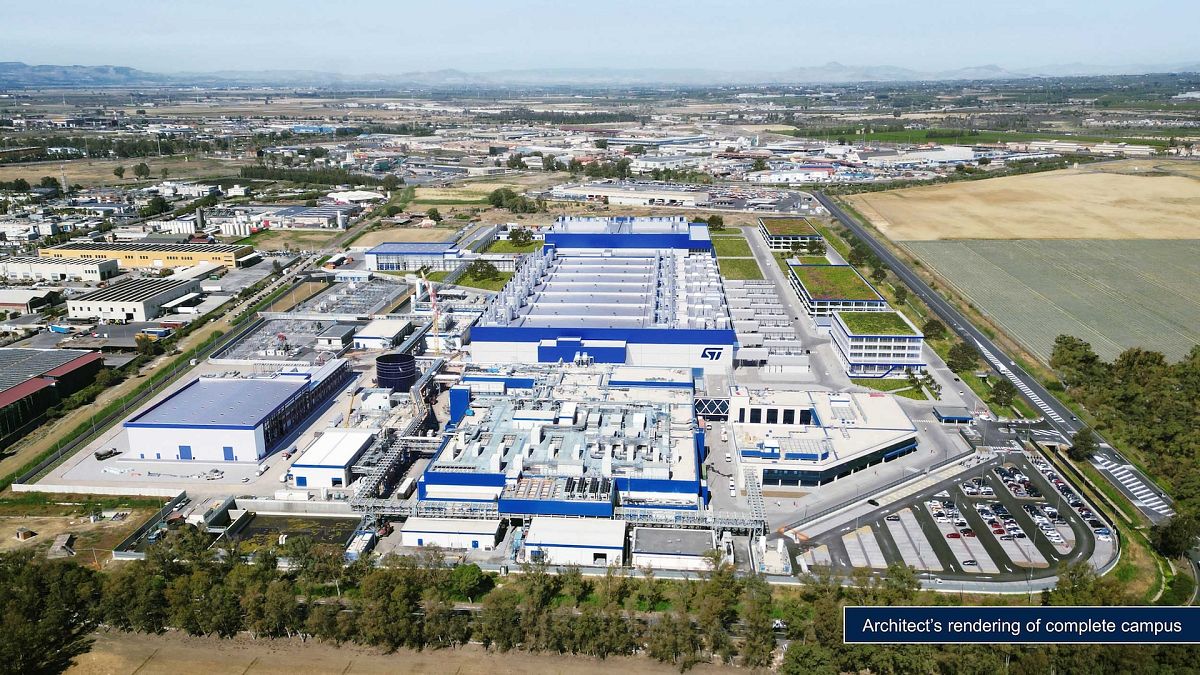The move is the latest step in the EU’s strategy to boost chip manufacturing on the continent and reduce reliance on China.
Semiconductor giant STMicroelectronics has recently revealed that it will be getting a €2 billion grant from the Italian government to built a chip factory in Sicily. It’s the EU’s latest move designed to boost European semiconductor production, in order to reduce its reliance on China.
The factory will be based at Catania in Sicily and will be for silicon carbide power devices, which are needed to produce the wafers that are used as bases for some microchips. Silicon carbide is a compound material, which is used across a range of things such as electric vehicles and renewable energy infrastructure.
The factory is expected to take care of the entire manufacturing process, from input materials to final products, such as power modules and transistors. It will be the first fully integrated silicon carbide facility globally and the first of its kind in Europe. It is expected to be fully operational by 2032.
As such, this plant is likely to go a long way in supporting the goals highlighted in the recent European Chips Act. The grant is expected to be a part of investments planned by the company which are likely to total about €5 billion.
The European Commission’s vice-president in charge of competition policy, Margrethe Vestager said in a statement: “The €2 billion Italian measure approved today supports a unique integrated facility for silicon carbide chips.
“It will strengthen the European semiconductors supply chain and ensure our access to a reliable source of power-efficient chips used for example in electric vehicles and charging stations. This will support our digital and green transitions and help create high-skilled employment, while limiting possible distortions of competition.”
What is the European Chips Act and why is it important?
The European Chips Act is an act that lays out the framework for taking Europe’s percentage of global chip production from about 10% currently to 20% by the end of 2030, in order to achieve chip independence and reduce reliance on foreign manafacturers.
This will be done by boosting both private and public chip investment, addressing skills shortages, attracting new talent, stepping up the design and quality of current chips and deepening sector knowledge and understanding. This act also recommends better cooperation between member states.
The European Commmision said, “With the European Chips Act, the EU will address semiconductor shortages and strengthen Europe’s technological leadership. It will mobilise more than €43 billion of public and private investments and set measures to prepare, anticipate and swiftly respond to any future supply chain disruptions, together with member states and our international partners.”
This strategy is especially important in the current uncertain economic situation, as Taiwan holds the main share of chip production currently. However, due to rising tensions with China, Taiwanese chip supply is constantly under threat.
The COVID-19 pandemic and subsequent supply chain blockages also resulted in several factories closing down, due to reliance on only a few Asian manufacturers. Europe now seeks to address this by boosting its own domestic chip supply.

